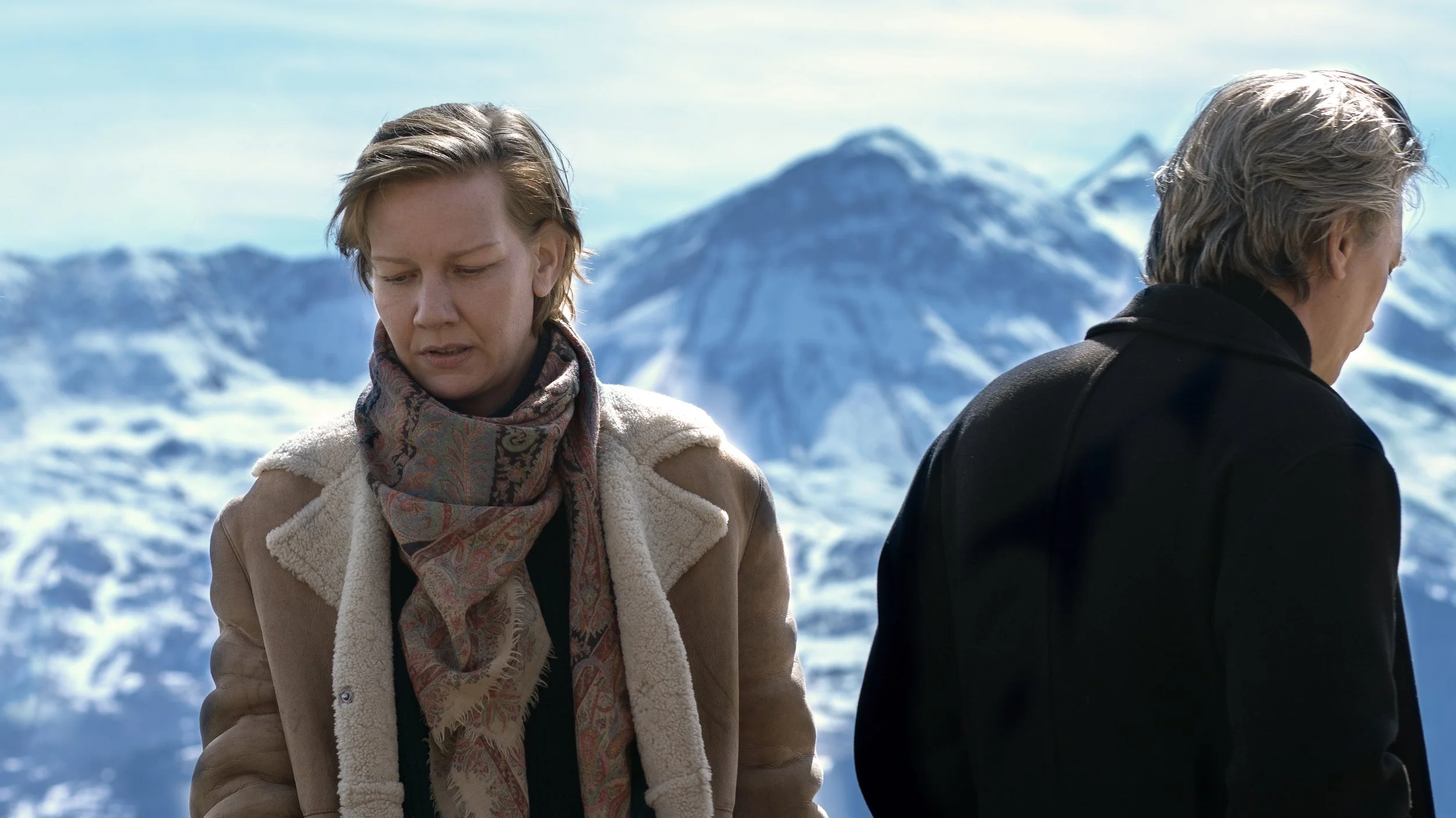Anatomy of a Fall
Directed by Justine Triet
Running time: 2hrs31 | REVIEWED BY GUY LODGE
Sandra Hüller and Swann Arlaud in Anatomy of a Fall
On the crisp snow outside his family’s isolated chalet in the Alps, 11-year-old Daniel (Milo Machado Graner) returns from a walk to find his father Samuel (Samuel Theis) dead, blood trickling from his head, far below an open window; hearing Daniel’s screams, his mother Sandra (Sandra Hüller) comes outside to the bad news, and the questions begin. First among them, the oldest one in the mystery playbook: did he jump, or was he pushed? If the latter, Sandra is the only suspect; if the former, she’s still under the microscope, as the underpinnings of their seemingly comfortable marriage come in for scrutiny.
There’s a version of Anatomy of a Fall, French director Justine Triet’s brilliantly thorny and elusive new film, that could be an hour-long episode of ‘Murder, She Wrote’ or some such, filling in blanks and apportioning blame. What we get instead, over an expansive but consistently riveting two-and-a-half-hour runtime, is a kind of emotional procedural, less concerned with cold facts than with multiple parties’ fluid, permeable ideas of the truth, and the ellipses between them.
Nobody holds all the cards here. Daniel, who is partially sighted, keeps adjusting his recollection of events — perhaps to protect his mother, perhaps to guard his own trauma. Sandra, at least, knows what she did or didn’t do, but can’t say the same about her husband; the more she argues her case in court, projecting convenient motivations onto a dead man, the more it sounds like she didn’t really know him at all. As a celebrated author, she knows how to construct fictional possibilities from real life, but not vice versa; her empathetic but wily lawyer Vincent (Swann Arlaud) reminds her that in court, the most believable story isn’t necessarily the most truthful one.
The rigid, literally rule-bound conventions of the courtroom drama have been getting an exciting reassessment in French cinema of late: as in Alice Diop’s great Saint Omer, Triet and co-writer Arthur Harari here examine how the respectable order and etiquette of the legal system can obscure as much as it exposes, how the inconsistencies and eccentricities of messy human life don’t always stand up to formal cross-examination.
The filmmakers’ fixation on untidy ambiguities is matched by Hüller’s astonishing performance as a woman who would likely stand her ideological ground as intensely if she were guilty as if she were innocent. At a certain point in the trial, it feels she has to defend her right to an imperfect marriage more urgently than anything else: Hüller scars and complicates Sandra’s defiance with little stinging paper cuts of indignation, sensitivity and genuine sorrow for lives gone awry: hers, her husband’s, and her son’s as it’s subjected to all this ugly, aired-out adult business. The extraordinary Graner is as tremulously poised as his onscreen mother is nervously clenched; we wonder what other secrets they’ve shared or hidden from each other. Deliberate and elegant in form, but with a fast heartbeat under its serenity, Anatomy of a Fall gives its audience plenty of space to breathe and gaze and ponder matters less immediate than simply whodunnit — though you may be arguing with yourself over that, too, for days to come.
ANATOMY OF A FALL (2023) Written by Justine Triet and Arthur Harari | Shot by Simon Beaufils | Edited by Laurent Sénéchal
